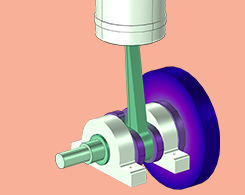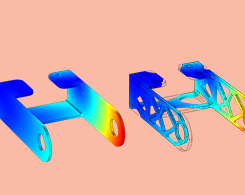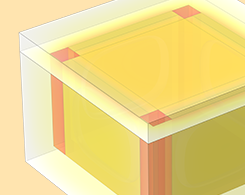Latest Posts

How to Model Fluid Friction in Joints with COMSOL Multiphysics®
Follow along as we demonstrate how to model fluid friction in joints using 2 rotordynamics examples: a piston and a reciprocating engine.

An Homage to Stephen Hawking
We reflect on Stephen Hawking’s life as well as his contributions to cosmology, including A Brief History of Time, black holes, zero-gravity flight, and beyond.

A Guide to Publishing and Licensing Simulation Applications
Interested in protecting the proprietary rights of the simulation applications you create and distribute? We walk you through 2 ways to set up licensing terms and conditions.

Performing Topology Optimization with the Density Method
The density method simplifies the process of topology optimization. Get an overview of how to use a special density feature for topology optimization in the COMSOL® software.

2019: The International Year of the Periodic Table of Elements
To celebrate an essential organizational tool in the scientific community, the United Nations named 2019 the International Year of The Periodic Table of Chemical Elements.

Maintaining Cold Temperatures in an Isothermal Box with Simulation
Heat transfer modeling is more accurate when you can input historical climate data from ASHRAE, such as in this example of an isothermal box designed to transport perishable items and medicine.

How to Simulate the Carrier Dynamics in Semiconductor Devices
Learn how to simulate carrier dynamics in semiconductor devices with 2 examples: reverse recovery and forward recovery PIN rectifier models.

Evaluating a Fire-Resistant Overpack for Nuclear Waste
Confinement system overpacks are used to safely store radioactive waste. Sogin uses heat transfer modeling to design safe and reliable overpacks that are resistant to fire.
